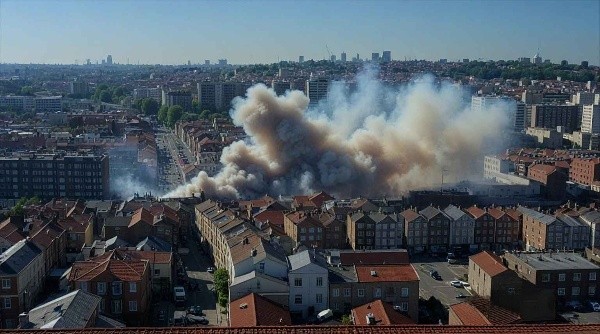Iran’s Plan to Strike Back Against the U.S.
Iran’s Military Preparations Following U.S. Attacks
Loading...

Hezbollah confirms assassination of top-ranking commander Ibrahim Aqil in Israeli strike
Retaliatory Rocket Fire
In a significant escalation of hostilities, Lebanon's Hezbollah resistance movement launched a barrage of rockets targeting key Israeli military installations and settlements. This retaliation came swiftly after Israeli airstrikes struck Beirut, resulting in multiple casualties. Reports indicate that Hezbollah fired approximately 200 rockets and deployed drones aimed at various Israeli targets, including military bases and intelligence headquarters. Sirens were activated across more than 30 illegal settlements in northern Israel, signaling the severity of the attack.
The specific targets of Hezbollah's strikes included the Ein Zaitem base, home to the Israeli military's Northern Corps, and the Mishar base, which houses the main intelligence headquarters in the region. Hezbollah claimed that the Mishar base was particularly significant, as it was allegedly responsible for orchestrating assassinations.
Casualties from Israeli Airstrikes
The backdrop to this retaliatory action was a series of Israeli airstrikes on Beirut that resulted in the deaths of at least nine individuals, including five children, and left 59 others injured, according to Lebanon's health ministry. The strikes reportedly involved the use of advanced weaponry, including missiles fired from drones and F-35 jets targeting densely populated areas in the southern suburbs of Beirut, particularly the Dahiyeh neighborhood.
Lebanon's Prime Minister, Najib Mikati, condemned the Israeli aggression, emphasizing that the targeting of civilian areas demonstrates a blatant disregard for humanitarian and legal standards. The airstrikes were reportedly aimed at Ibrahim Aqil, a senior commander within Hezbollah, who was a member of the group's Jihad Council, responsible for directing military and security operations.
The Assassination of Ibrahim Aqil
Ibrahim Aqil's assassination marks a significant loss for Hezbollah, as he had recently taken over leadership responsibilities following the death of Fuad Shukr, another high-ranking commander, in a previous Israeli operation. The ongoing Israeli military campaign has intensified since October 7, 2023, when it launched a large-scale offensive against the Gaza Strip, prompting Hezbollah to respond with numerous retaliatory strikes in solidarity with the Palestinian people and in response to the escalating violence against Lebanon.
Broader Implications
The recent exchanges of fire between Hezbollah and Israel highlight the precarious security situation in the region. The ongoing conflict has not only resulted in significant loss of life but has also exacerbated tensions between Lebanon and Israel, with both sides preparing for potential further escalations. Hezbollah's actions are seen as a direct response to Israeli provocations, and the group has vowed to continue its military operations against Israeli targets as long as the aggression persists.
As the situation develops, the international community watches closely, aware that any further escalation could lead to a broader conflict in the region. The cycle of violence appears unending, with both sides entrenched in their positions, raising concerns about the humanitarian impact on civilians caught in the crossfire.
Editor
Iran’s Military Preparations Following U.S. Attacks
Troops remain in five strategic locations, raising fears of renewed tensions and long-term occupation.
Opposition forces have taken control of the capital after a significant offensive. Here is how it unravelled.
